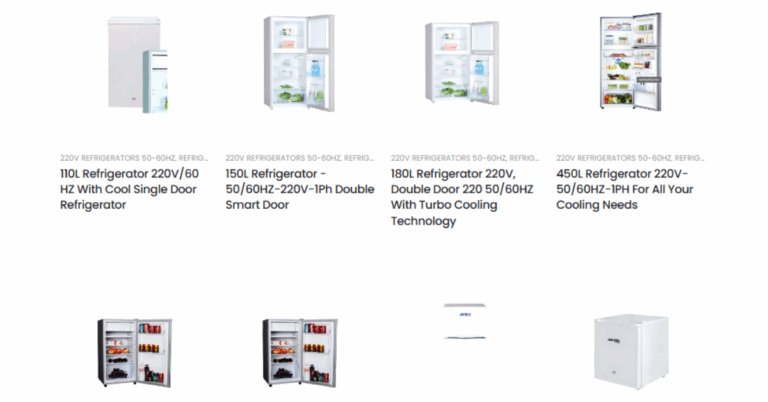Best CRM for Higher Education: A Complete Guide for Institutions
In today’s competitive academic landscape, selecting the Best CRM For Higher Education is crucial for institutions aiming to streamline communication, boost enrollment, and enhance student engagement. Customer Relationship Management (CRM) systems designed specifically for higher education help colleges and universities manage prospective students, admissions, alumni relations, and ongoing communications effectively.
Choosing the best CRM for higher education means finding a solution tailored to the unique needs of academic institutions, offering features that support recruitment, retention, and relationship building. This article explores the importance of a CRM in higher education, key features to look for, benefits, and answers common questions to help your institution select the best CRM for higher education.
Why the Best CRM for Higher Education Matters
The higher education sector faces challenges like increased competition, rising student expectations, and the need for personalized communication. The best CRM for higher education offers institutions a powerful tool to address these challenges by:
-
Centralizing data on prospective and current students, faculty, alumni, and donors.
-
Automating communication to nurture relationships and keep stakeholders informed.
-
Tracking recruitment and admissions workflows efficiently.
-
Enhancing collaboration across departments like admissions, marketing, and student services.
-
Providing analytics and insights to make data-driven decisions.
By investing in the best CRM for higher education, institutions can improve student recruitment, boost retention rates, and build lifelong relationships with alumni.
Key Features of the Best CRM for Higher Education
When searching for the best CRM for higher education, it’s important to consider features that meet the specific needs of colleges and universities.
Lead Management and Recruitment Tools
The best CRM for higher education enables seamless management of prospective student leads from initial contact through enrollment. Features like lead scoring, automated follow-ups, and personalized messaging help admissions teams engage effectively.
Communication Automation
Automated emails, text messages, and notifications allow institutions to maintain consistent contact with students and prospects, reducing manual workload and improving response times.
Integration Capabilities
A top-tier CRM integrates smoothly with other essential systems such as student information systems (SIS), learning management systems (LMS), and marketing platforms, ensuring data consistency and operational efficiency.
Reporting and Analytics
The best CRM for higher education provides robust analytics tools to track recruitment success, application trends, and student engagement metrics, empowering decision-makers with actionable insights.
Mobile Accessibility
With students and staff constantly on the move, mobile-friendly CRM access ensures that users can manage relationships and workflows from anywhere.
Personalization and Segmentation
The ability to segment student populations and customize communications ensures that messaging resonates with different groups, whether by program, demographic, or engagement history.
Benefits of Using the Best CRM for Higher Education
Implementing the best CRM for higher education brings numerous advantages that extend beyond recruitment.
Enhanced Student Engagement
By tracking interactions and preferences, the best CRM for higher education allows institutions to deliver personalized experiences that keep students connected and motivated.
Streamlined Admissions Process
Automation and workflow management tools reduce bottlenecks, improve communication, and speed up the admissions cycle.
Improved Alumni Relations
The best CRM for higher education helps maintain relationships with alumni by managing events, fundraising campaigns, and networking opportunities effectively.
Data-Driven Decision Making
With comprehensive reports and dashboards, higher education leaders can make strategic choices based on real-time data, optimizing recruitment and retention strategies.
Cost Efficiency
By reducing manual tasks and improving process efficiency, the best CRM for higher education can lower operational costs while increasing enrollment success.
How to Choose the Best CRM for Higher Education
Choosing the best CRM for higher education requires careful evaluation of your institution’s specific needs, budget, and long-term goals.
Assess Your Institution’s Needs
Identify pain points in your current processes and what features are essential for your team, whether that’s recruitment tracking, communication automation, or alumni engagement.
Evaluate Usability
The best CRM for higher education should be user-friendly for both tech-savvy staff and those less familiar with technology.
Consider Scalability
As your institution grows, your CRM needs may evolve. Choose a CRM that can scale to handle increasing numbers of students and data.
Review Vendor Support and Training
Strong customer support and comprehensive training resources are crucial for successful CRM adoption and ongoing use.
Analyze Cost vs. Features
Balance the pricing with the CRM’s capabilities to ensure you get the best value for your investment.
Implementing the Best CRM for Higher Education: Tips for Success
Once you select the best CRM for higher education, successful implementation is key to maximizing its benefits.
-
Engage stakeholders early to get buy-in and gather input on needs.
-
Provide thorough training to staff to ensure smooth adoption.
-
Set clear goals and KPIs to measure CRM success.
-
Regularly review and update CRM data and workflows.
-
Leverage analytics to continuously improve recruitment and retention strategies.
Frequently Asked Questions
What makes a CRM the best for higher education?
The best CRM for higher education is tailored to the unique workflows, communication needs, and data management requirements of academic institutions. It supports recruitment, admissions, student engagement, and alumni relations with automation, integration, and analytics.
Can the best CRM for higher education integrate with my existing systems?
Yes, the best CRM for higher education offers robust integration options with student information systems, learning platforms, and marketing tools to streamline data flow and improve efficiency.
How long does it take to implement the best CRM for higher education?
Implementation time varies depending on the institution’s size and complexity but generally ranges from a few weeks to several months. Proper planning and training can accelerate the process.
Is the best CRM for higher education suitable for small colleges?
Absolutely. Many CRM solutions are scalable and customizable, making them suitable for both small colleges and large universities.
How does the best CRM for higher education improve student retention?
By tracking student engagement and identifying at-risk individuals early, the best CRM for higher education enables targeted communication and support to improve retention rates.
Conclusion
Selecting the best CRM for higher education is a strategic decision that can significantly impact an institution’s recruitment, retention, and alumni relations. By focusing on features like lead management, communication automation, integration, and analytics, colleges and universities can improve operational efficiency and foster stronger connections with their students.
Investing in the best CRM for higher education empowers institutions to meet the evolving demands of the academic environment, stay competitive, and ultimately enhance the student experience from prospect to alumni.







